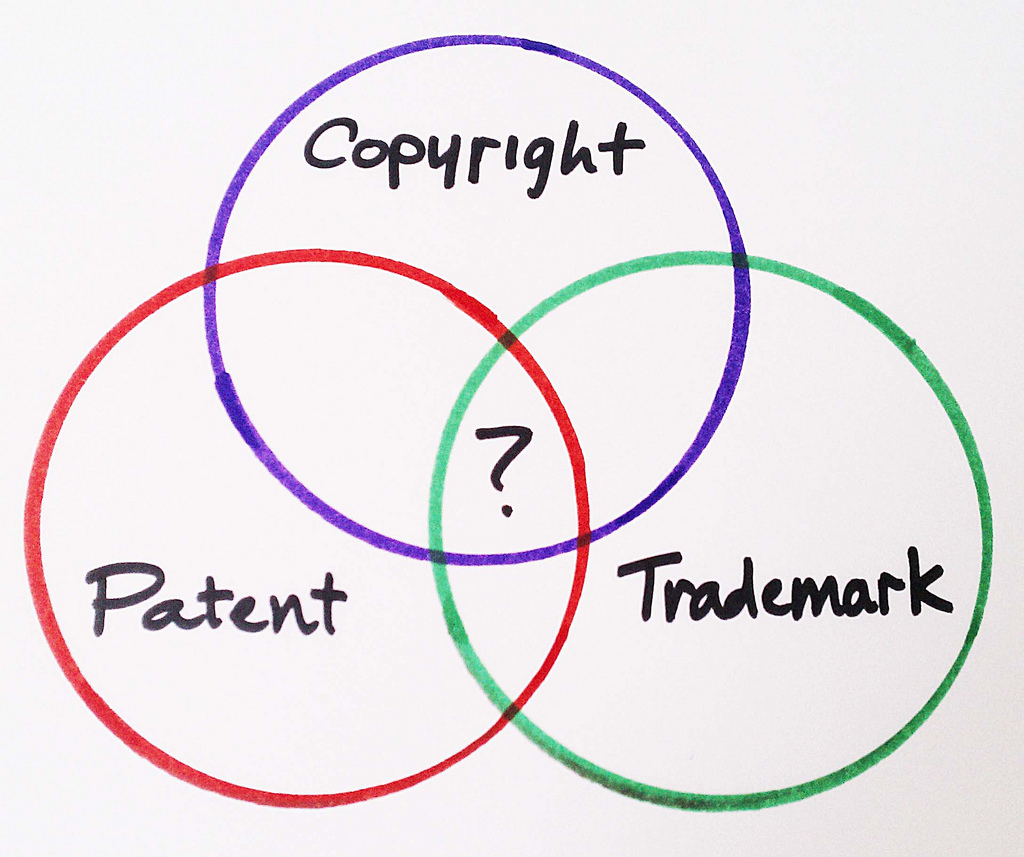Source: https://www.flickr.com/photos/businesssarah/5977958263The term ‘intellectual property’ simply means properties that are creations of the intellect. These are intangible creations and include, but may not be limited to: inventions, industrial designs, musical compositions, trade secrets, business names, and logos. These creations can be protected as trademarks, patents, copyrights, or trade secrets depending on the type of intellectual property. Small business owners and budding entrepreneurs can benefit from an understanding of intellectual property laws in Canada in order to use their intellectual property effectively.
Trademarks
Trademarks are essentially words, sounds, or designs that are used to distinguish goods or services of one entity from another. There are three types of trademarks:
- An ordinary trademark: This type of trademark consists of words, sounds, designs or a combination of these to distinguish goods or services from one entity to another
- A certification mark: This is more or less indicative of a certain standard that can be attributed to certain goods or services
- A distinguishing guise: This is about the shape of goods or their containers, or a way of wrapping or packaging goods that shows they have been made by a specific individual or business
Patents
The Canadian Intellectual Property Office defines ‘patents’ as a right that the government gives an inventor to sell, or use an invention for a maximum period of twenty years after the day on which you filed your patent application. Patents comprise of any new and useful invention or an improvement to an existing invention. There are three basic criteria for patentability namely:
- Novelty: The invention needs to be one of a kind
- Utility: The invention should have some sort of usefulness. An invention without any utility cannot be patented
- Inventiveness: to be patentable, your invention must be a new development or an improvement of an existing technology that would not have been obvious to someone working in your area of speciality
Copyright
Copyrights are used to bestow the right of copying a piece of work of the author or creator of the same. In Canada, the moment you create something unique it is automatically copyrighted. However, you may register your copyright to obtain proof of ownership. While this ownership can be rebutted in court, it becomes the burden of the challenging party to prove that ownership is incorrect. The duration of the copyright includes the entire lifetime of the creator and fifty years following the death of the creator. Works that are not protected by copyright are considered to be copyright-free and available in the public domain.Fair dealing sets limitations on the copyright holder’s right to limit the usage of his work. This means people can use copyrighted material for research purposes, private study, criticism, review, news reporting, parody, and satire without obtaining the permission of the copyright owner.These were some of the aspects of intellectual property that you ought to know if you plan to start a business in Canada. If you wish to know more about the topic, contact our team of professions today!

